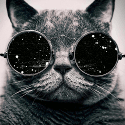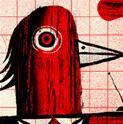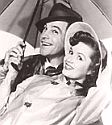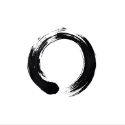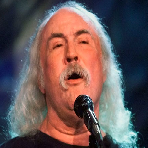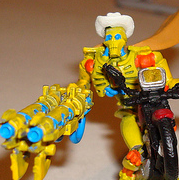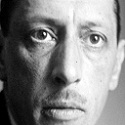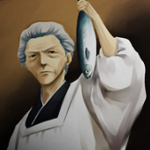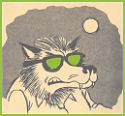|
CestMoi posted:I realise that sometimes I call people stupid for reading bad books but this time I was genuinely saying that the guy should reconsider or at least not go away thinking FIght Club is representative of post modern ism I agree the book was bad, I even wrote as much in my post. Anyway, I know very little about literary genres, which is partly why I wanted to do the challenge in the first place. I saw the book mentioned a couple of places in reference to postmodern works and figured I'd give it a shot. I've removed it from my challenge list (unfortunately not from my general reading list, can't do much about that) and I'll find something else for the challenge.
|
|
|
|

|
| # ? Jun 1, 2024 17:54 |
|
oliven posted:I agree the book was bad, I even wrote as much in my post. Anyway, I know very little about literary genres, which is partly why I wanted to do the challenge in the first place. I saw the book mentioned a couple of places in reference to postmodern works and figured I'd give it a shot. I've removed it from my challenge list (unfortunately not from my general reading list, can't do much about that) and I'll find something else for the challenge. hit up some Pynchon for the postmodern challenge. or you could peep the postmodern thread for some additional inspiration
|
|
|
Books read: 8/100, Challenges Met: 0mdemone posted:1) 300,000,000 - Blake Butler. Written from the (very insane) perspective of a mass murderer living in a house that is not quite only a house, interspersed with the deteriorating story of the detective who investigates the killings. The tag line is "The good thing about deciding to kill everyone in America is that you can start with anyone in America." Which is a decent enough grabber, and the prose is very stream-of-consciousness, although done pretty well. The problem is, that's all it is. It reads like a crazy person wrote it, and that's a good/bad thing. I would suggest leafing through it in the bookstore if you are interested -- open up the last third or so of the book (don't worry, you won't understand enough to be spoiled), and realize that the whole thing is written that way. Well-nigh unreadable in parts, and practically inspired in others. This book could have been much more than it was. I recommend picking it up in a used bookstore if the New Weird is your thing, but if nothing I said sounds good to you, then stay away. Man, I'm way behind in my list-making. This is somewhat of a placeholder, I'll add reviews & info as I have time later this weekend. 3. Time's Last Gift - Philip Jose Farmer 4. Arc d'X - Steve Erickson 5. They Shoot Horses, Don't They? - Horace McCoy 6. The Lords of the Ghostlands - Edgar Saltus 7. The Good, The Bad, and The Infernal - Guy Adams 8. The Time Traveler's Almanac - various authors mdemone fucked around with this message at 23:12 on Mar 5, 2015 |
|
|
|
|
Got within 100 pages of the end of William Gibson's The Peripheral and gave up. Horrendous writing, very poor character development, and I was pissed at how lazy the reveal of "the Jackpot" was. I found myself not giving a poo poo what was happening. Big let-down from a writer of his caliber. Almost done with The Blind Owl, and not quite understanding what all the hype is about.
|
|
|
|
Argali posted:Almost done with The Blind Owl, and not quite understanding what all the hype is about. thje hype is that it;s a very good short story
|
|
|
|
A bit late for my writeup on February because the baby refuses to let my wife and I use the computers ever. Or sleep. For related reasons, I haven't read nearly as much this month as I did in January, although not having the christmas holiday to read during doesn't help either. On the plus side, nothing this month was a reread. Booklord Challenge Update posted:1. 21/96 books read; 6 nonfiction (28%), 7 rereads (33%) 16. The Rhesus Chart by Charles Stross The latest Laundry novel. I didn't like it as much as The Fuller Memorandum but enjoyed it more than The Apocalypse Codex, and it's nice to see stuff that happened in the earlier books coming back to haunt Bob. 17. The Emergency Sasquatch Ordinance by Kevin Underhill Meh. Too much breadth, not enough depth. I don't want to know that these laws exist, I want to know why they exist and whether, and how, they've been enforced! I realize that's a much larger research project but I think it would also be a much better book. In general I seem to have this disappointment with "PYF books", and should probably just avoid them in the future. 18. Wasp by Eric Frank Russel This book has a premise that appeals greatly to my love of cunning strategems and heist-like things: a single man is dropped on a hostile planet, there to blend in with the natives with the ultimate goal of crippling the government and military with a one-man exercise in sabotage and psychological warfare. The title comes from the observation that "a single wasp can kill several adult humans and destroy tonnes of expensive machinery simply by making the driver of the car panic". The book generally lives up to this; it's dated, but both pleasingly heisty and quite funny in places. 19. Shadows over Baker Street edited by Michael Reaves & John Pelan This is a collection of short stories on the basis of the Cthulhu Mythos crossed with Sherlock Holmes. When it goes right, it goes really right; far and away the high point of the collection is Gaiman's contribution, A Study in Emerald, which I dare not say more about for fear of spoilers. Unfortunately, when it goes wrong you get, instead of a Holmes story in Lovecraft's setting, a Lovecraft story using Doyle's characters. This, I find, is not nearly as enjoyable. Elizabeth Bear continues to be very hit and miss with me; Tiger Tiger was one of the latter type of stories and not a particularly interesting one at that, but her previous foray into Lovecraft, Shoggoths in Bloom, I considered one of the best stories of the collection bearing that name. 20. Deep Space Craft: an Overview of Interplanetary Flight by David Doody David Doody was an engineer on the Voyager missions and is currently engineering and ops lead for Cassini, so he knows his stuff. This book is exactly what it says on the tin: a broad overview of how deep space probes work, starting with interplanetary communication and moving on to navigation and tracking, attitude control, propulsion, the physical structure of the spacecraft, sensors and science experiments, and finally wrapping up with a look at the overall procedure that goes from an initial proposal to a launched and operational probe. The first few chapters are great, but it gets really dry once it starts talking about sensors. Still a pro-read if you're interested in space, but Ignition was much more readable. It's also made me want to play KSP again and install kOS so I can write safing routines for all of my probes. By design, it's more broad than deep, but it goes more in depth than I expected and it is meticulously cited if you want to go in-depth on any of the topics it covers. 21. Plato and a Platypus Walk Into a Bar: Understanding Philosophy through Jokes by Thomas Cathcart & Daniel Klein This one was a christmas present from my boss. Short, entertaining, had some jokes I hadn't heard before, but all in all not a lot of substance to it. It could work as an "ok, which fields of philosophy sound interesting to me", but unlike Deep Space Craft it doesn't come with extensive citations, so you have to hunt down further reading on your own. It does make a nice, light break between second half of Deep Space Craft and the next book in my queue, the equally dry The Polyamorists Next Door.
|
|
|
|
thespaceinvader posted:1: Cryptonomicon by Neal Stephenson I just wish she didn't have this tendency of leaving a giant cliffhanger at the end of the second book of her trilogies. It happened with Newsflesh as well - the first book had a proper ending. An ending that set up the next book, admittedly, but the story finished, before the next story started. Same with Parasite; the story finished, the overall plot arc continued. But with Symbiont, as with Deadline, she left a giant loving cliffhanger. I wish she would stop doing that, it really, really bugs me; I want a novel, not a partwork I have to wait a year plus to finish. Gah. Next is... something. Probably.
|
|
|
|
Argali posted:Almost done with The Blind Owl, and not quite understanding what all the hype is about. "All the hype" is the one dude who is running the challenge and enjoys the book.
|
|
|
|
15. Alas Babylon - by Pat Frank An interesting post-apocalyptic novel, in that it really does it's best to try and play things straight. It attempts to answer the question, what would people do in order to survive should the Cold War break out into nuclear war. When compared to what other people have done since, Alas, Babylon reads really, really tame but it's not a bad piece of writing. 16. The Fifth Assassin - Brad Meltzer Overly, needlessly, insufferably over-complicated. Meltzer tries so hard to weave dense twisting secrets and events that he doesn't realize that plot suffers as a result. Probably the last Meltzer I'll read for awhile. 17. The Magician's Land - Lev Grossman I really, really loved the third book, and by extension, I really do appreciate the other books that came before it even more. Having finished all three, they really do work together to tell a complete story. 18. The Electric Kool-Aid Acid Test - Tom Wolfe This isn't a terrible book, and Wolfe makes for an interesting read, but honestly the hippies and merry pranksters in this book really aren't all that much more interesting than the hippie kids you would run into at college. I suppose at another time what they were up to was really fun and really exciting, but after many years you can't help but wonder why they didn't spend all of that energy and creativity doing something worthwhile. 19. Kitchen Confidential - Anthony Bourdain A really enjoyable biography. I am not, by any means a foodie. I cook things from time to time, and when I have time to do a good job, I usually really enjoy it. While Bourdain's arrogance and vanity is a bit of a hurdle, it is a book that makes the world of cooking interesting. I'd be curious to read other people's takes on a similar approach. 20. The Thin Man - Dashiell Hammett Somebody gave me this book because my wife and I just had our second child, who we named Dashell. I was pretty excited to read it. Then I read it. It is a mystery novel, but it is really dull. It is pretty much 200 pages in which one only exciting thing happens. Otherwise it is people just bouncing around having conversations with each other, everybody just lying and making poo poo up as they talk, and then at the last minute all the pieces fall together. I imagine what makes The Thin Man and Nick and Nora Charles so memorable is the film treatment of the story, and how it injects style and some witty banter into the mix.
|
|
|
|
My 6th book was Skills-based Learning for Caring for a Loved One with an Eating Disorder: The New Maudsley Method, by Treasure, Smith & Crane. It's essentially an instruction manual for anyone with a person with an eating disorder in the family and provides a basis for the return to good health. Recommended for anyone caring for someone with anorexia or bulemia - it will help you understand what to do in a tough time. 1. 6 Books. Wind up bird chronicle, Murukami Brothers Karamazov, Dostoyevsky Mindset: how you can fulfil your potential, Carol Dweck Book of Strange New Things, Michael Faber Chavs, Owen Jones Skills-based Learning for Caring for a Loved One with an Eating Disorder: The New Maudsley Method, Treasure, Smith, Crane 2. Female author - Dweck
|
|
|
|
It's a bit late in the year for this, but I'd like to do it again. I'll go for 50, since that's about what I read last year. If I end up doing any of the specifics of the challenge I'll take note of it. The Challenge: 1. The vanilla read a set number of books in a year. (12/50) 4. Philosophy 6. An essay 7. A collection of poetry 8. Something post-modern 9. Something absurdist 10. The Blind Owl (Free translation if your ok with reading on a screen or cant find a copy!) 14. Wildcard (Some one else taking the challenge will tell you what to read) 15. Something published this year or the past three months 16. That one book that has been sitting on your desk waiting for a long time 17. A play 20. Something banned or censored 21. Short story(s) 22. A mystery Read so Far: (12/50) January: (6 Books) The Goddess Chronicle by Natsuo Kirino - I still have yet to read Out, but after reading this I'm really interested in it. It's beautifully written in sparse yet poetic style, and the narrative is well-paced and tense. You can tell that Kirino mostly writes thrillers, as the elements that employed thriller-like elements were the strongest written, but it's all pretty good, and an interesting exploration of Japanese mythology from a perspective that most people wouldn't be familiar with. By Grand Central Station I Sat Down And Wept by Elizabeth Smart - I've found that the transition from poet to novelist can be a difficult one, but if you can pull it off, it's amazing. Elizabeth Smart pulls it off. Her writing is gorgeous-- there's a quotable on just about every page, but there is a lot of gorgeous, poetic writing that is impossible to get through simply because it's too abstract. Not so here, the writing is completely understandable and personable. Liked this one a lot. Autobiography Of Red by Anne Carson - Lots of poetic novels early on in the year. In contrast to By Grand Central Station, however, this one is legitimately an extended poem (mostly). It's very interesting, not 100% what I was expecting. It's a very visceral work. There's lots of talk of meat and the color red and all of it comes together to form a rather disturbing picture, but it's still very beautiful. In terms of plot, it reminds me a lot of A Portrait Of The Artist As A Young Man, in that it's about a young artist's coming of age, and I think it lives up to its spiritual predecessor's quality. Liked this one a lot too. Raise High The Roof Beam Carpenters & Seymour: An Introduction by J.D. Salinger - A bit of a disappointment from Salinger. I've loved everything else I've ever read from him (The Catcher In The Rye, Nine Stories, and Franny & Zooey), but this one just wasn't up to par. Basically, all of the flaws from Salinger's other works are present and brougth to the fore, while few of the things that were really endearing about his other works are weirdly absent. It's not terrible, just not as good as you might expect. Kinda boring. The Left Hand Of Darkness by Ursula K. Le Guin - I read this because I loved The Dispossessed. This one didn't quite meet my expectations, but nonetheless it was a very good book. The worldbuilding was great, and while it didn't tie in the worldbuilding to the conceptual ideas behind the book with the same finesse as with The Disposessed, it still had a lot of neat concepts that it played with that were executed in a fairly interesting way. A solid work from Le Guin, maybe not worthy of the hype surrounding it, though. The Graveyard Book by Neil Gaiman - Neil Gaiman is an extremely-- charming writer. I think that's the best word for it. That's not an epithet, I love his prose. It reminds me of the wily simplicity that the greatest voices in children's fiction tend to employ; it's really nice. This is the kind of book that I would want to read to my hypothetical kids. The story deals with some dark themes-- death, the loss of innocence, yet it never loses its wonder, and never at any point feels dark. It's just a very good book, and I enjoyed it immensely. February: (3 Books) The Wilsonian Moment by Erez Manela - Read for class. Not sure if that counts, but I'll tentatively include it since it took up most of my reading time for February. As an analysis of post-WWI colonial politics, I think it's essential if a little simplistic. I think the Lenin-Wilson dichotomy is a little forced, but overall a good overview of Wilson's philosophy, his policy, and the effects-- both intended and unintended-- that they had on the world. A Monarchy Transformed by Mark Kishlansky - Also read for class. An analysis of the changes in British society from 1603-1714 and of the causes behind the English Revolution that put Cromwell into power. Interesting read from a purely historical point-of-view. A bit dry. If you're really interested in this time-period of history, read the book, but I wouldn't read it if you're looking for something light and easy-to-read. Money by Martin Amis - A good book, often sags under the weight of its own overwrought prose, but I have to admire its ambitions. It's as if the book was conceived to be as risky as humanly possible. Obviously there are sometimes misses, but there are a lot of hits too, and I'm convinced after reading this that Martin Amis is some kind of demented genius. Also, notable for having the most loathsome protagonist this side of Humbert Humbert. Still trying to decide who is a worse person. March: (3 Books) Silence by Shusaku Endo - Honestly, I think the argument could be made that this is the Heart Of Darkness of the twentieth century. Of course, it goes down a more religious route in terms of themes then HoD does, but in terms of its psychological depiction of the meeting between two different cultures and the analysis of the hypocrisy of cultural moralism (and its racist implications), it is almost without par. It's often overlooked, but I think it's a very important book. I'm really glad I read it. A Race Against Death by Peter Bergson - An oral history. Very illuminating look on the outright refusal of the United States to take in Jewish refugees and the struggle of various interest groups to get Americans to take notice. In any case, I think it's important to remember that American policymakers did very much know about the holocaust and on the whole ignored it because they had other things on their plate at the time. Americans cannot deny responsibility for their implicit part in the Holocaust, and A Race Against Death serves as a good reminder. The Disaster Artist by Greg Sestero (Biography, sort-of) - I loved this book. It's well-written (not sure if that's Sestero himself or his co-author) and one of the funniest, most bizarre books I've ever read. I suppose in reality I've read weirder books, but the fact that this one is ostensibly a true story takes it to new levels. It's kind of amazing that Tommy Wiseau exists, that's all I have to say (mostly copied from the WAYR Thead). Ezzum fucked around with this message at 07:12 on Mar 14, 2015 |
|
|
|
thespaceinvader posted:1: Cryptonomicon by Neal Stephenson That being said, onto the story - it was an interesting urban fantasy world, with well-built characters - but the aforementioned lack of worldbuilding made life difficult in getting to know how things worked - and the ending whilst satisfying (and whilst it had a MUCH more optimistic-feeling, and much better-told, conclusion than Worm) didn't really feel finished. Overall, it felt like we were following some poorly-described side characters in someone else's story, which given the meta-references from Worm to the Maggie Holt books... maybe we were. I would have liked to spend more time in the world, and more time with the characters when they weren't running from something or fighting something. His next entry, Twig, seems to be OK so far, so we'll see how that goes. I'm also reading The Three Musketeers, because I've seen it adapted SO many times now, from dogs to spaghetti-firing inventors to steampunk airships to the BBC's latest (and quite fun) swashbuckling adventure, but never actually read the original. And it's free. I'm enjoying it. As usual with older literature, I can't help but feel like we've advanced a lot in our understanding of how to make a story interesting, though. The writing feels very stilted and occasionally difficult to read, and there's a lot more bland description than I'm used to. And yeah, social mores are very different; I can't help but feel that if the BBC had been truer to the original, no-one would have liked the servant-beating, smug, arrogant arseholes on display here. But the book is nonetheless fun. Next will be, obviously, something, possibly everything, from Terry Pratchett. A man is not dead whilst his name is still spoken, or in this case, whilst his words are still read.
|
|
|
|
So what are people gonna read for their censored/banned book? I was thinking the obvious one - Rushdie's Satanic Verses - but I brought that up to several people and they warned me the book is actually not that great, especially in comparison to Rushdie's other works.
|
|
|
|
Argali posted:So what are people gonna read for their censored/banned book? I was thinking the obvious one - Rushdie's Satanic Verses - but I brought that up to several people and they warned me the book is actually not that great, especially in comparison to Rushdie's other works. That is what I'm gonna read. I think it's just way more difficult than his other stuff.
|
|
|
|
Argali posted:So what are people gonna read for their censored/banned book? ... I picked up a copy of Fahrenheit 451 yesterday that I'm going to start on after I finish up the Rights of Man.
|
|
|
|
I'm doing pretty good on my reading front, but I've got a lot of poo poo that needs to get sorted this calendar year, so just to make sure I don't end up neglecting my reading any, I think I'm going to jump on the challenge. I read somewhere around 50-55 books last year, so I'll start off slightly lower than that and set my goal to 40 books this year. But just a set number of books is dull, so let's see what I can do to make this interesting. I'll go with the following challenges: 1. The vanilla read a set number of books in a year. 2. Read a female author - (Susan Sontag, Gabriela Mistral) 3. The non-white author - I read a varied bunch of authors already, but I've been putting off Salman Rushdie for far too long. So, that. File me under "Basic Bitch" as I add The Satanic Verses to this one. 4. Philosophy - I've been wanting to give Derrida a go. So De la Grammatologie I guess. 5. History 6. An essay - Where the Stress Falls. Essays. by Susan Sontag. 7. A collection of poetry - A collection of Poems by Gabriela Mistral (includes poems from Desolación, Ternura, Tala, Lagar and Poema de Chile) 8. Something post-modern - Inherent Vice by Pynchon. 9. Something absurdist 11. Something on either hate or love 12. Something dealing with space - The Cyberiad by Stanislaw Lem 13. Something dealing with the unreal 14. Wildcard (Some one else taking the challenge will tell you what to read) - The Cyberiad by Stanislaw Lem 15. Something published this year or the past three months 16. That one book that has been sitting on your desk waiting for a long time - Feast of the Goat by Vargas Llosa 17. A play - Waiting for Godot (if someone has a better suggestion, just holler) 18. Biography - Ingar Sletten Kolloen's Hamsun biographies 19. The color red 20. Something banned or censored 21. Short story(s) 22. A mystery I've already gone through 9 books so far this year, two of which were poetry collections, but I'll keep the challenge up anyway, since I read far too little of that as is. 1. Hear the Wind Sing, Haruki Murakami 2. Pinball 1974, Haruki Murakami 3. On The Beach, Neil Shute 4. Collected Poems by Per Sivle 5. History of the Siege of Lisbon, José Saramago 6. Wayfarers, Knut Hamsun 7. The Seed, Tarjei Vesaas 8. Morning and Evening, Jon Fosse 9. The Collected Poems of Alberto Caeiro, Fernando Pessoa 9/40 I'll add more to the specific challenges later. In the mean time, eagerly awaiting the Wildcard suggestion. ulvir fucked around with this message at 18:29 on Mar 18, 2015 |
|
|
|
ulvir posted:... Art of War by Sun Tzu I read the Ralph D. Sawyer edition/translation and would recommend it unless someone can recommend a better version.
|
|
|
|
8one6 posted:Art of War by Sun Tzu let someone else get in there with a wildcard suggestion, dude. Here's my mid March update 2. Read a female author Glenda Dawn Goss, Sibelius, a life 3. The non-white author Shohei Ooka, Fires on teh Plain 4. Philosophy 5. History 6. An essay 7. A collection of poetry 8. Something post-modern Thomas Pynchon, Bleeding Edge 9. Something absurdist Thomas Bernhard, The Loser 10. The Blind Owl 11. Something on either hate or love Charles Dickens, A Tale of Two Cities 12. Something dealing with space 13. Something dealing with the unreal Milorad Pavic, Dictionary of the Kazhars 14. Wildcard (Some one else taking the challenge will tell you what to read) 15. Something published this year or the past three months 16. That one book that has been sitting on your desk waiting for a long time Vasily Grossman, Life and Fate 17. A play 18. Biography Elias Canetti, Memoirs 19. The color red 20. Something banned or censored 21. Short story(s) 22. A mystery Patrick Modiano, Missing Person Plus some other poo poo!!! OVERALL PROGRESS: 11/40 I read Fires on the Plain by Shohei Ooka first, I had seen the movie and the book wasn't too different. It's about a Japanese soldier on an island in the Philippines in WWII, and the Japanese are losing, hard. The big conflict is trying to get food to not starve! Unlike the movie, the main dude survives in the end though, and he is a Japanese Christian during WWII, apparently??? weird, but good haha. I'm gonna give it a 4/5 Then I read The Loser by Thomas Bernhard. Bernhard is a neat dude who hated everything all the time, and wrote novels that were long uninterrupted inner monologues. I Think all his novels are like this. Just a single paragraph where the narrator talks about how lovely everything is (very). The conceit for this one is cool, the narrator is a classical pianist who studied with Vladimir Horowitz, and was ready to take the European concert scene by storm. Unfortunately, he meets Glenn Gould, and realizes that Glenn Gould is way better than himself, and decides to quit the piano, and mope around for like thirty years. Also, another student in the class is eventually driven to suicide by Glenn Gould's talent. It was a cool book, I think I'm burned out on Bernhard right now though, which is why I'm only giving it a 3.7 out of 5. Finally, I read the last volume of Elias Canetti's autobiography, The Play of the Eyes. It's soo good to read. Canetti has like Proustian level understanding of social situations and what makes ppl tick. PLUS he hung out with the coolest people in pre-war Vienna (Musil, Berg, Broch, Alma and Anna Mahler), and he dishes out the goods. He was apparently really grossed out by the way Alma Mahler used personal tragedy to get ahead in the social scene. anyway, it's a masterpiece, I doubt I'll ever find an autobiography nearly as good as this. If anyone knows of any that are comparable, please post about them, so I can read them! thank you. 5/5.
|
|
|
|
Argali posted:So what are people gonna read for their censored/banned book? I am reading Ferdydurke and it is hilarious.
|
|
|
|
8one6 posted:Art of War by Sun Tzu as interesting as it might be, I think I'll wait and see if someone else has anything to suggest as well. ulvir posted:I'll add more to the specific challenges later. In the mean time, eagerly awaiting the Wildcard suggestion. Still up for grabs, folks.
|
|
|
|
ulvir posted:Still up for grabs, folks. Blindsight by Peter Watts.
|
|
|
|
ulvir posted:Still up for grabs, folks. The Cyberiad by Stanislaw Lem. Arguably counts as absurdist as well.
|
|
|
|
Kopijeger posted:The Cyberiad by Stanislaw Lem. Arguably counts as absurdist as well. I've never been entirely clear on what counts as "absurdism", but The Cyberiad owns. (I read the English translation, not the original, and that translator deserves a goddamn medal.)
|
|
|
|
Just finished Big Breasts & Wide Hips by Mo Yan. It wasn't my favorite of his (that would still pretty easily be Republic of Wine) but it has a good mix of themes in uses in his other works, and is overall probably the best representation of his style if anyone is thinking of getting into his stuff. My only complaint is that things started to speed through quickly at the end of the book when the main character grew up and you entered the 70's - 90's; it seems like his wheelhouse is pre-Communist Revolution through the Cultural Revolution so he skims over stuff after that. Highly recommended, especially as an intro to Mo Yan. I just started reading Get in Trouble by Kelly Link and it is good so far. I will probably use it as my "read a book from this year" challenge.
|
|
|
|
9/24 The Blind Owl - Not sure how I feel about this. Started out kinda irritated with the story, then wound up repulsed and confused. Working as intended? I guess I will have to revisit it in the future.
|
|
|
|
1. The Bone Clocks, David Mitchell. 5/5. 2. The Martian, Andy Weir. 2/5. Booklord Challenge 1 completed: Read a book about space. 3. The Blind Owl, Sadegh Hedayat. This is a horrendous work of pathetic, pointless depression, like the scribblings from a high school freshman's notebook disguised as literature. Travel along as an agoraphobic opium addict drones on and on about death and shadows and madness, gets mocked by his adulterous wife, and stumbles around random ruined landscapes in Iran thinking deep thoughts. Other authors have done this with far greater skill - in fact, I couldn't help but read this as a kind of "Maldoror For Dummies" in many sections. 0/5. Booklord Challenge 2 completed: Read this lovely book.
|
|
|
|
Argali posted:3. The Blind Owl, Sadegh Hedayat. This is a horrendous work of pathetic, pointless depression, like the scribblings from a high school freshman's notebook disguised as literature. Travel along as an agoraphobic opium addict drones on and on about death and shadows and madness, gets mocked by his adulterous wife, and stumbles around random ruined landscapes in Iran thinking deep thoughts. Other authors have done this with far greater skill - in fact, I couldn't help but read this as a kind of "Maldoror For Dummies" in many sections. 0/5. Booklord Challenge 2 completed: Read this lovely book. provide a link next time you quote a goodreads review
|
|
|
|
hurr
Argali fucked around with this message at 18:58 on Mar 17, 2015 |
|
|
|
Argali posted:3. The Blind Owl, Sadegh Hedayat. This is a horrendous work of pathetic, pointless depression, like the scribblings from a high school freshman's notebook disguised as literature. Travel along as an agoraphobic opium addict drones on and on about death and shadows and madness, gets mocked by his adulterous wife, and stumbles around random ruined landscapes in Iran thinking deep thoughts. Other authors have done this with far greater skill - in fact, I couldn't help but read this as a kind of "Maldoror For Dummies" in many sections. 0/5. Booklord Challenge 2 completed: Read this lovely book. I'm glad that you gave it a chance even if you did not like it. I would not consider it rambling personally but :that one shrugging smiley: it is about death in a Tibetan sense (it is also about the process of creating art) where you enter bardo, a intermediary state where you have hallucinations and visions based on your life and can be repeated on end and be terrifying if you do not accept your fate and move on into your next life. Hence the repeated imagery of the old man the lady and the sense of rambling you had etc. I wouldn't say he ever has deep thoughts in the book but rather rumination due to being unable to move on. He was an opium addict though and addiction does play a huge role and can be seen as one of the core themes it touches on. Stravinsky fucked around with this message at 21:49 on Mar 17, 2015 |
|
|
|
It is not an easy, feel good thing to read so I understand if anyone comes off reading it not liking it. That's OK
|
|
|
|
3 and a half months in, a few books ahead. #14: The Hunt for Atlantis - Andy McDermott: The first book in the Nina Wilde series by our resident author. As addictive as any good thriller book, without the crazy right-wing politics of a Matthew Reilly or Tom Clancy. 4/5. #15: Maplecroft - Cherie Priest: Lizzie Borden fights Lovecraftian monsters. It is structured in an epistolary fashion (via letters / diary entries), and is much more slow-burning than the initial potted description would imply. If you’re looking for all action all the time, maybe consider reading something else (or get it out from a library if you’re still interested). 4/5. #16: Tarka the Otter - Henry Williamson: Well-known book about the life of an English otter. Until I read this book, I didn't know that people used to hunt otters. Well-researched, provides an interesting portrait of an otter and the south-western English countryside. 4/5. #17: Ship of Destiny - Robin Hobb: The final book in the Liveship Traders trilogy. Wraps up the trilogy and sets up events for the future Rain Wild quadrilogy. Next up chronologically is the Tawny Man trilogy. 4/5. #18: The Drunken Botanist - Amy Stewart: An overview of plants and their relation to various alcoholic drinks. Until I read this book, I didn't know there was such a thing as coffee beer, which I will probably try at some point. 4/5. #19: Can You Forgive Her? - Anthony Trollope: The first book in the Palliser series. The main plot of the book is about a woman who is unsure as to which of two men she should marry. Nowadays, I don't know if anyone would frown on a woman breaking off an engagement, so the main moral conflict of the book is somewhat antiquated. Despite that, I enjoyed reading it, but I know that some people would find this book a bit boring. 4/5. #20: Parable of the Sower - Octavia Butler: A book about a young black woman living in a very chaotic USA. I can see why so many people like Octavia Butler's books - she was an interesting writer. 5/5. Currently reading: Replay by Ken Grimwood and A Stranger in Olondria by Sofia Samatar.
|
|
|
|
ZakAce posted:#18: The Drunken Botanist - Amy Stewart: An overview of plants and their relation to various alcoholic drinks. Until I read this book, I didn't know there was such a thing as coffee beer, which I will probably try at some point. 4/5. Yesss! I love this book, and the hardbound edition is beautiful. She has at least a couple other botany books (Wicked Plants looks promising).
|
|
|
|
8one6 posted:Art of War by Sun Tzu Groke posted:Blindsight by Peter Watts. Kopijeger posted:The Cyberiad by Stanislaw Lem. Arguably counts as absurdist as well. I've been doing some thinking, and and landed on The Cyberiad. Thanks for the suggestions from all y'all
|
|
|
|
ulvir posted:I've been doing some thinking, and and landed on The Cyberiad. Well, it's a hell of a good thing to be reading, Lem is amazing.
|
|
|
|
Groke posted:Well, it's a hell of a good thing to be reading, Lem is amazing.
|
|
|
|
RedTonic posted:(Wicked Plants looks promising). I read this earlier this year and did not like it too much. There were some very interesting plants but nothing gets more than 1-2 pages, so the majority of the book was stuff like "If you eat this kind of grass, you could get sick, so don't eat your lawn if you have this kind of grass!"-type of nonsense.
|
|
|
|
Stravinsky posted:It is not an easy, feel good thing to read so I understand if anyone comes off reading it not liking it. That's OK Have you read Georges Bataille's The Impossible? I think that's far better than The Blind Owl and, thematically, is in the same general ballpark. Argali fucked around with this message at 13:43 on Mar 22, 2015 |
|
|
|
The Rebel Angels - Robertson Davies Really, really good. As I continue to work my way through Davies' novels, I am continually impressed. I can see why he's received such accolades and has been considered one of Canada's leading authors. The characters are genuinely interesting, the romance is genuinely intriguing, and the plot twists and character interactions are clever and enjoyable. Very Canadian, though, and I mean that in a Central Canadian kind of way, and yet he still managed to defy stereotypes. I'm going to take a break, though, and get back to the novels sitting on my bookshelf, which I have neglected. I'll look into the sequels later. "A Few Kind Words For Superstition" - Robertson Davies A brief, but interesting read. A lot of Davies' stuff includes the mystical and magical, so his support for superstition is not surprising. He makes note of the superstitions he sees in his experience at universities, though, which is interesting--though again, not entirely surprising given his novels. An interesting essay, but-- "Notes On Punctuation" - Lewis Thomas --this one was really enjoyable. Brief, but clever. Thomas plays around with punctuation in writing the essay. I highly recommend this one because it's funny and clever. Also, trying to explain it too much would spoil it, but it's nice to see a writer have so much fun with punctuation. Cyrano de Bergerac - Edmond Rostand A fictitious play supposedly based on the real-life exploits of Bergerac. He's a brilliant swordsman, a braggart, a lover, and a tragic-romantic poet--unfortunately, he has a large, clown-like nose. Extremely funny, if you're into romcoms from the 1800s. It's very quick and witty. The wordplay reminds me a lot of Oscar Wilde. Highly recommend it to anyone looking for a play that is a light read.
|
|
|
|
Can someone recommend me a wildcard to read? Edit: Could you also recommend a postmodern book? 8one6 fucked around with this message at 04:19 on Mar 23, 2015 |
|
|
|

|
| # ? Jun 1, 2024 17:54 |
|
8one6 posted:Can someone recommend me a wildcard to read? Wildcard - The Emigrants by Sebald.
|
|
|


